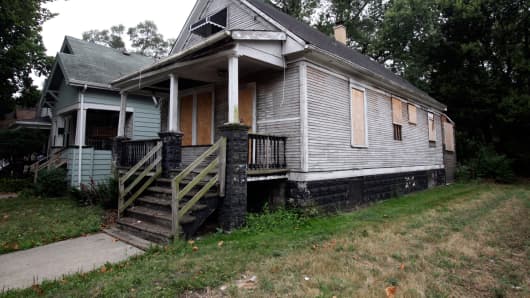These complex derivatives—cousins of the credit instruments used to package subprime mortgages—were sold as a surefire hedge against the risk to taxpayers that rising interest rates could raise borrowing costs for cities, states and schools. Instead, the bet backfired.
After the Federal Reserve flooded the financial system with cash in 2008 to protect the shattered banking system, interest rates fell to zero—turning many of the these swaps upside down and saddling the government entities on the losing side of the bet with annual payments to Wall Street bankers who arranged the deals and the counterparties who ended up on the winning side.
(Read more: Damage to city budgets: Some was self-inflicted)
Like other critics of these deals, the union contends that these swaps are diverting precious taxpayer funds from badly needed public service—and the pensions owed to the public employees they represent.
But municipal finance experts note that some cities and states saved millions of dollars in borrowing costs on these deals before the 2008 crisis. In any case, the swap represents a binding commitment with the same force as the bond the swap is attached to.
Some cities and states have decided to bite the bullet and pay a hefty "termination fee" which, not unlike a homeowner paying off a mortgage, ends the burden of annual swap payments. In 2012, for example, New York state paid $243 million to terminate its swap deals, using $191 million in new borrowing to do so.
(Read more: Here's what you need to know in the muni bond market)
Terminating swaps may help free up cash in the short run but—depending on the terms of the swap—it may mean throwing good money after bad.
The cost of canceling the deal also varies based on changes in interest rates. Just as the drop in rates increased the cost of these deals, rising rates will gradually ease financial pain.
In some cases, say municipal finance advisors, states and cities holding costly swaps may be better off waiting for rates to rise to more historical levels before trying to restructure them with fresh debt.



